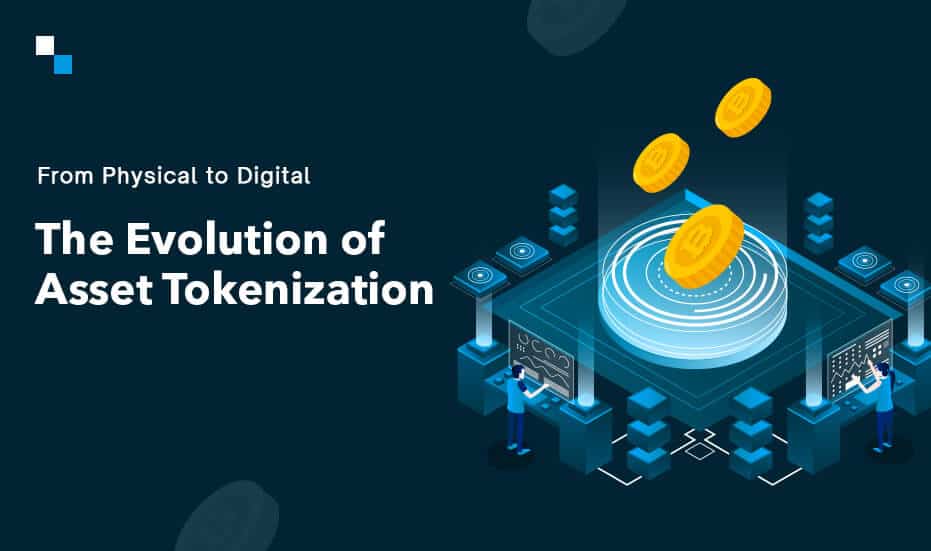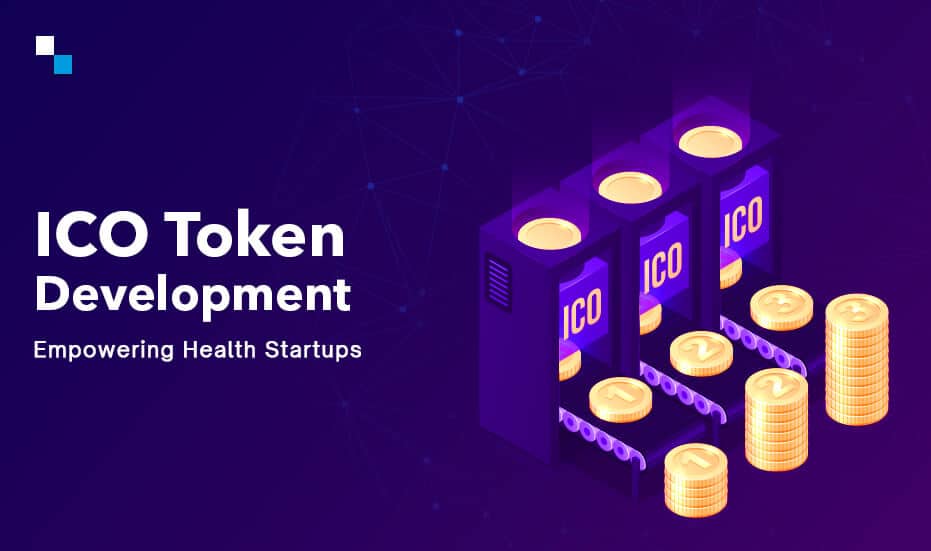Healthcare funding has been a longstanding challenge for many organizations and projects within the industry. However, with the emergence of tokenization, there has been a significant shift in the way healthcare funding is being approached. Tokenization is revolutionizing healthcare funding by unlocking new levels of financial accessibility for projects that were previously hindered by traditional barriers. This innovative approach is not only reducing financial barriers but also enhancing transparency and security within healthcare investments. Moreover, tokenization is maximizing efficiency and speed in the funding process, creating more opportunities for healthcare projects to thrive. In this blog post, we will explore the impact of tokenization on healthcare funding and how it is reshaping the industry for the better.
Tokenization: Revolutionizing Healthcare Funding
Tokenization is reshaping the way healthcare projects are funded, bringing about a revolution in the industry. By leveraging blockchain technology, tokenization has made it possible for healthcare organizations to access a broader pool of investors and streamline the funding process.
This innovative approach to funding allows for financial accessibility for healthcare projects that may have previously struggled to secure traditional funding. With tokenization, healthcare providers can tap into a larger investment base, increasing the likelihood of successful project funding.
One of the key benefits of tokenized healthcare funding is the reduction of financial barriers that may have hindered the progress of healthcare initiatives in the past. By utilizing digital tokens, healthcare projects can attract a diverse range of investors, breaking down financial obstacles and accelerating project development.
Moreover, tokenization in healthcare funding enhances transparency and security in investment processes. Through blockchain technology, investors can have a clear view of their investments and transactions, while healthcare organizations can ensure the security of their funding sources.
Unlocking Financial Accessibility for Healthcare Projects
Tokenization is a revolutionary concept that has the potential to transform the way healthcare projects are funded. By leveraging tokenized assets, healthcare initiatives can unlock new avenues of financial accessibility, paving the way for innovative and impactful projects to become a reality. Tokenization allows for the fractional ownership of assets, making it easier for a larger pool of investors to participate in healthcare funding, ultimately increasing financial accessibility for projects that may have previously struggled to secure the necessary funding.
Traditional funding for healthcare projects can often be hindered by financial barriers, limiting the potential for growth and development in the industry. However, with tokenized healthcare funding, these barriers are significantly reduced, allowing for a more inclusive investment landscape. This democratization of healthcare funding opens doors for a wider range of individuals and organizations to support projects that align with their values and goals, ultimately leading to a more diverse and impactful healthcare ecosystem.
Furthermore, tokenization enhances transparency and security in healthcare investments, providing investors with a clear understanding of where their funds are being allocated and how they are contributing to the success of a project. This increased transparency fosters trust and confidence in the investment process, attracting a broader range of investors who may have previously been hesitant to engage in healthcare funding due to concerns about lack of visibility and control.
Ultimately, by embracing tokenization in healthcare funding, the industry can maximize efficiency and speed in securing the necessary financial support for projects. The streamlined nature of tokenized healthcare funding accelerates the investment process, allowing for projects to access the funding they need in a more timely manner, leading to quicker implementation and impact in the healthcare sector.
Reducing Financial Barriers through Tokenized Healthcare Funding
Tokenization in healthcare funding is swiftly breaking down the financial barriers that have often stood as obstacles for healthcare projects. Through the process of Tokenization, healthcare projects are gaining access to a wider pool of investors, as well as increasing the speed and efficiency of funding. This new method is reducing the financial barriers that have limited the growth and development of healthcare initiatives, providing opportunities for projects that may have previously struggled to secure traditional funding.
By utilizing Tokenization in healthcare funding, projects are able to tap into a more diverse range of investment opportunities. This creates the potential for a broader base of financial support, ultimately leading to greater accessibility for healthcare projects. As a result, the barriers to entry for healthcare initiatives are effectively reduced, allowing for a more inclusive and diverse landscape for investment and growth within the healthcare sector.
One of the key advantages of Tokenized healthcare funding is the enhanced transparency and security that it offers to investors. Tokenization provides a clear and immutable record of investments, reducing the risk of fraudulent activity and increasing trust within the investment process. This increased level of transparency and security not only benefits the investors, but also adds a layer of credibility and reliability to healthcare projects, further reducing financial barriers and attracting a wider range of potential supporters.
Overall, the implementation of Tokenized healthcare funding is revolutionizing the traditional methods of healthcare project funding, unlocking new opportunities and breaking down the financial barriers that have long hindered the progress and success of healthcare initiatives. By enhancing transparency, increasing accessibility, and reducing financial obstacles, Tokenization is shaping the future of healthcare funding and paving the way for a more inclusive and efficient healthcare investment landscape.
Enhancing Transparency and Security in Healthcare Investments
Healthcare investments are crucial for the development and advancement of medical technologies, treatments, and facilities. However, traditional methods of funding healthcare projects often lack the transparency and security necessary to inspire confidence in investors. This is where tokenization comes in, revolutionizing the way healthcare investments are funded and managed.
By tokenizing healthcare investments, the process becomes more transparent as each investment is represented by a digital token on a blockchain. This allows for real-time tracking of investments, ensuring that all transactions are secure and verifiable. As a result, investors can have greater confidence in the integrity of the investment process, knowing that their funds are being used for their intended purpose.
Furthermore, the use of blockchain technology in tokenizing healthcare investments enhances security by reducing the risk of fraud and unauthorized access. Each transaction is recorded on a decentralized and immutable ledger, making it virtually impossible for malicious actors to alter or manipulate the investment data. This level of security is essential in the healthcare industry, where sensitive patient information and financial transactions must be protected at all costs.
In addition to transparency and security, tokenization also offers increased efficiency and accessibility in healthcare investments. By digitizing investment opportunities, tokenization allows for greater flexibility in how investors can participate, breaking down financial barriers and opening up new opportunities for funding healthcare projects.
Maximizing Efficiency and Speed with Tokenization in Healthcare Funding
Tokenization in healthcare funding has transformed the way healthcare projects are financed. By leveraging tokenization technology, the process of raising capital for healthcare initiatives has become more efficient and faster than ever before. Through tokenization, healthcare organizations can benefit from increased liquidity and access to a broader range of potential investors.
Moreover, the use of tokenization has reduced the time and costs associated with traditional fundraising methods. Healthcare projects that embrace tokenization can streamline the investment process, allowing for quicker access to the necessary funding. This increased speed of fundraising enables healthcare initiatives to expedite their development and implementation, ultimately leading to more timely and impactful solutions for patients and communities.
Furthermore, tokenization enhances the transparency and security of healthcare investments. By utilizing blockchain technology, tokenization ensures that all transactions and ownership rights are securely recorded and protected. This level of transparency and security not only builds trust among investors but also minimizes the risks associated with healthcare funding, ultimately attracting more capital to the industry.
In conclusion, the adoption of tokenization in healthcare funding has revolutionized the financial landscape of the industry. By maximizing efficiency and speed in the fundraising process, enhancing transparency and security, and reducing financial barriers, tokenization has unlocked new opportunities for healthcare projects to thrive and make a meaningful impact.
Frequently Asked Questions
What is tokenization in healthcare funding?
Tokenization in healthcare funding refers to the process of converting healthcare assets or projects into digital tokens that can be traded or invested in. This allows for more efficient and accessible funding for healthcare initiatives.
How does tokenization revolutionize healthcare funding?
Tokenization revolutionizes healthcare funding by breaking down financial barriers, increasing transparency, and maximizing the efficiency and speed of investments. It allows for greater accessibility and security in healthcare funding.
What are the benefits of unlocking financial accessibility for healthcare projects?
Unlocking financial accessibility for healthcare projects through tokenization allows for a wider range of investors to participate, leading to increased funding opportunities for healthcare initiatives. It also promotes financial inclusivity and diversity in the healthcare funding landscape.
How does tokenization enhance transparency and security in healthcare investments?
Tokenization enhances transparency and security in healthcare investments by utilizing blockchain technology to provide a secure and immutable record of transactions. This reduces the risk of fraud and increases trust in healthcare funding processes.
What role does tokenization play in reducing financial barriers in healthcare funding?
Tokenization plays a key role in reducing financial barriers in healthcare funding by enabling fractional ownership and transferability of healthcare assets. This opens up investment opportunities to a broader range of individuals and entities, ultimately promoting financial inclusion in healthcare.
In what ways does tokenization maximize efficiency and speed in healthcare funding?
Tokenization maximizes efficiency and speed in healthcare funding by streamlining the investment process, reducing administrative burdens, and enabling real-time transactions. This accelerates the flow of capital into healthcare projects and promotes rapid deployment of resources.
How can tokenization contribute to the growth and advancement of healthcare funding?
Tokenization can contribute to the growth and advancement of healthcare funding by fostering innovation, improving access to capital, and promoting the development of cutting-edge healthcare solutions. It has the potential to drive positive disruption and evolution in the healthcare funding ecosystem.






